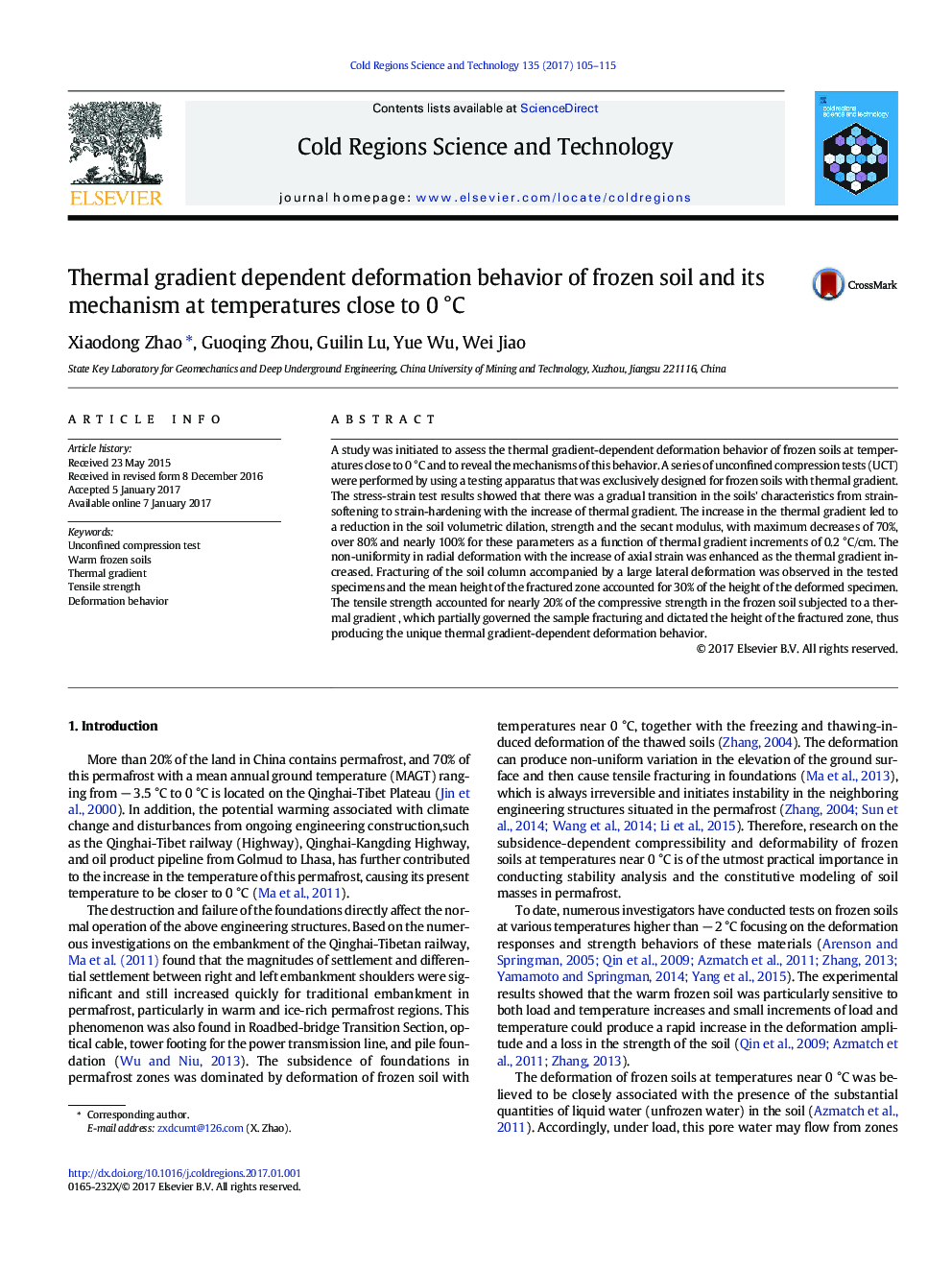| Article ID | Journal | Published Year | Pages | File Type |
|---|---|---|---|---|
| 5779475 | Cold Regions Science and Technology | 2017 | 11 Pages |
Abstract
A study was initiated to assess the thermal gradient-dependent deformation behavior of frozen soils at temperatures close to 0 °C and to reveal the mechanisms of this behavior. A series of unconfined compression tests (UCT) were performed by using a testing apparatus that was exclusively designed for frozen soils with thermal gradient. The stress-strain test results showed that there was a gradual transition in the soils' characteristics from strain-softening to strain-hardening with the increase of thermal gradient. The increase in the thermal gradient led to a reduction in the soil volumetric dilation, strength and the secant modulus, with maximum decreases of 70%, over 80% and nearly 100% for these parameters as a function of thermal gradient increments of 0.2 °C/cm. The non-uniformity in radial deformation with the increase of axial strain was enhanced as the thermal gradient increased. Fracturing of the soil column accompanied by a large lateral deformation was observed in the tested specimens and the mean height of the fractured zone accounted for 30% of the height of the deformed specimen. The tensile strength accounted for nearly 20% of the compressive strength in the frozen soil subjected to a thermal gradient , which partially governed the sample fracturing and dictated the height of the fractured zone, thus producing the unique thermal gradient-dependent deformation behavior.
Related Topics
Physical Sciences and Engineering
Earth and Planetary Sciences
Earth and Planetary Sciences (General)
Authors
Xiaodong Zhao, Guoqing Zhou, Guilin Lu, Yue Wu, Wei Jiao,
